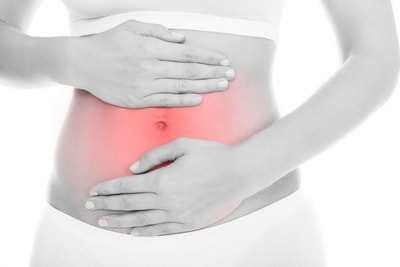 Colitis is a medical condition that is generally characterized by the inflammation and swelling of the large intestines. The condition may be caused by a variety of factors (from infections, auto immune disease to insufficient blood supply) and proper diagnosis, therefore, is very important for effective treatment.
Colitis is a medical condition that is generally characterized by the inflammation and swelling of the large intestines. The condition may be caused by a variety of factors (from infections, auto immune disease to insufficient blood supply) and proper diagnosis, therefore, is very important for effective treatment.
The colon or the large intestine is a long and muscular cylinder that mainly functions to collect and store the waste products of digestion. It contracts to slowly push the excess food downwards to the anus where they are excreted in feces. The muscular tube is actually made out of several layers. There is the smooth muscle layer found at the outermost portion which is responsible for the muscular contractions.
There is also an inner layer which is called the mucosal layer, which is responsible for secreting mucus and liquids that will help solidify the feces before excretion. The inflammation occurs at this particular tissue layer.
Colitis Types and Causes
As mentioned before, colitis can be caused by several different factors. And because of this, there are also different types of inflammation, each grouped according to its underlying cause. One of the most common types of the inflammation is ulcerative colitis.
This condition is grouped as an autoimmune disease which means that the inflammation is mainly brought about by the body’s own immune system. The body’s own white blood cells attack the colon, resulting in the swelling and infection. The infection spreads and finds its way up to the upper portions of the large intestine. Ulcerative colitis can result to abdominal pain and bloody stools.
Another well-studied type of the infection is the pseudomembranous colitis. This is an infectious form of the disease, caused by the bacterium called Clostridium difficile. C. Difficile is a Gram-positive bacteria that is capable of producing spores and is, therefore, highly infectious. The condition is initially caused by patient’s previous exposure to antibiotics.
The antibiotics have the ability to alter the normal bacterial flora of the digestive system, which allows these opportunistic bacteria to grow and multiply into large and dangerous numbers. The bacteria produce a potent toxin that can bring about diarrhea and fever.
Ischemic colitis is also a very common kind of colon inflammation. This is generally brought about by an insufficient supply of blood to the tissues around the area. Blood supply can be blocked through atherosclerosis or the deposition of fats around the blood vessels (very much like that in the heart). The colon may also lose its blood supply mechanically through volvulus (a mechanical twisting of the color) or through a hernia (the out-poaching of the abdominal wall). This condition can bring about extreme pain around the abdominal area, fever, and even bloody stools.
Signs and Symptoms of Colitis
Although different types of colitis can also produce different kinds of symptoms, there are a few general signs that patients can watch out for. The most common sings of the condition is abdominal pain and diarrhea. Other types of the inflammation can also result to bloody stools or feces but may be absent in others.
The blood is generally caused by bleeding hemorrhoids. Remember, this is not a normal occurrence so seek help from a medical professional once this happens.
Some patients may also experience abnormally more frequent bowel movements. This condition is medically known as tenesmus. The abdominal pain may also come in patterns – in waves or intermittently or it may just occur randomly as well. Other forms of colitis may also come with fever, chills and other kinds of associated infections.
Diagnosis
Diagnosis is first done by getting the patient’s comprehensive medical history. The beginning, the duration and the characteristics of the diarrhea are very important factors for proper diagnosis. A thorough physical assessment on the abdomen is also conducted. Doctors will usually look for areas of tenderness, masses or organ enlargements.
Sometimes, rectal examinations are also done to determine the presence of abnormal masses or tumors.
Laboratory tests are also very important – such as RBC, stool samples, BUN and Creatinine levels and many others.
Treatment
Patients who manifest these kinds of symptoms are highly recommended to seek help immediately from a licensed medical professional. Again, treatment can vary depending on the underlying cause of the inflammation. Colitis caused by bacteria is usually treated by antibiotics.
For the more severe cases, surgery may be required to remove some parts of the colon that have been severely damaged by the inflammation.
For conditions that are brought about by autoimmune disease, immune suppressant drugs are usually administered.